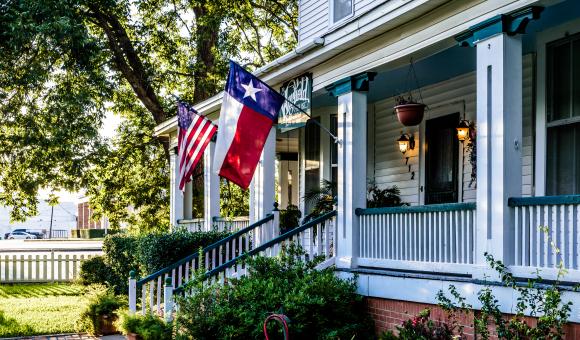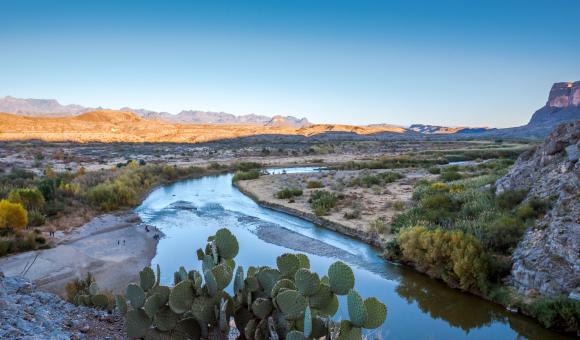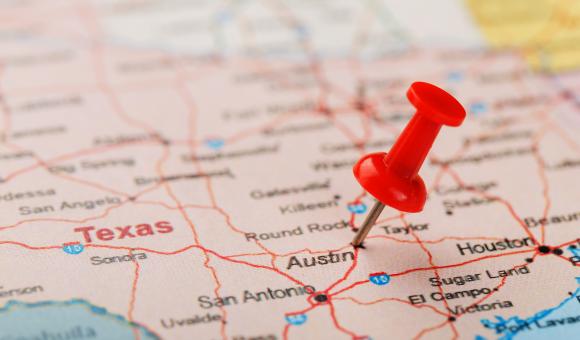
This week, around 20 Walloon entities are getting ready to set up shop in Texas. Temporarily, at least. The 13thAWEX (Wallonia Export & Investment Agency) technology mission and the South by Southwest Festival will be a great opportunity for them to approach the American market or strengthen their presence there. But why go through Texas?
A historical anecdote dates the relationship between Wallonia and Texas to 1839. A time when Texas was a Republic that had just declared its independence in Washington-on-the-Brazos (Belgium was one of the very first countries to recognise the Republic) and had finally found a place to build its capital. The site was just a small village on the banks of the Colorado River and was not yet called Austin, but rather... Waterloo. Unfortunately, this patronymic connection with BW did not last very long, as the town was soon renamed in honour of Stephen F. Austin, the 'father' of Texas. Was this a premonitory anecdote of future relations between Wallonia and Texas? And why not? The fact is that the two ecosystems still have a special relationship two centuries later.
Historical links...
One of these links - perhaps also premonitory - was forged in the twilight of the Second World War, during the Battle of the Bulge. Texas A&M University trained the largest number of GI officers present on the front. And this hasn't been forgotten in the Lone Star State. So much so that in 2013, this memory led to the twinning of the city of Bastogne with the municipalities on which Texas A&M University stands, namely Bryan and College Station. The first temporary exhibition at the new Bastogne War Museum was held at the same time. For its inauguration, the "Texas Aggies Go To War" event attracted more than a thousand Texans to Ardennes. And it has now moved permanently to Texas after spearheading the museum for two years. On the Texas A&M campus, that goes without saying.
... and economic links
One of the reasons these initiatives have come to fruition is the relationship that the Wallonia Export-Investment Agency and Texas A&M University have had for more than 15 years.
"Wallonia strengthened its economic relations with Texas in 2005," recalls Philippe Lachapelle, director of AWEX's Innovation Team. "At the time, we noticed that Texas A&M University included all the disciplines listed in the Marshall Plan. As for the State itself, it had and still has particularly attractive economic and tax benefits, making it the second largest economy in the United States and the 14th largest in the world. From the outset, Texas represented a very interesting gateway to the (North) American market. We have been working with Texas A&M to identify opportunities for collaboration with Wallonia's industrial policy. Important links were then established. First with the university, and then with the economic players around it. One thing led to another, and we have built a welcoming environment in Texas so that our companies - essentially technology companies - can find a breeding ground for their development on American soil, with human resources, capital, intellectual property, market opportunities, etc."
In 15 years, nearly 300 Walloon companies have taken part in Wallonia Export & Investment Agency technology missions, and around 15 of them have set up a subsidiary in Texas.
On 9 and 10 March, the 13th Wallonia Export & Investment Agency Technology Mission will allow some 15 Walloon entities to meet with the innovation capabilities present there, and at Texas A&M in particular.
SXSW: ephemeral capital of the creative industries
Part of this delegation will then head to South by Southwest (SXSW), North America's largest international art and technology innovation festival. Held from 11 to 20 March in Austin, it will bring together some 20 Walloon innovators who want to tackle this particularly vast sector of activity. The WBI and AWEX stand at the festival will be the epicentre of an array of business opportunities: B2B meetings on site, networking sessions on the rooftop of a partner law firm, Walloon breakfast, Belgian Beer Café, French-speaking village, meetings with Quebec technology players and more.

"WBI and AWEX have been present at the Festival since 2018, with the aim of showcasing our innovative nuggets, research centres and university labs, placing Belgium on the global innovation map and being inspired by the latest creative and technological trends," explains Marie Beheyt, Research & Innovation Project Manager at WBI. "The entities from the south of the country that will be making the trip to Austin operate in fields such as virtual reality, transmedia, artificial intelligence, film, sound art, digital, magic automation and creative cultures. The Universities of Liège, Mons and Leuven will also be part of the event."
Technology working to boost creativity, creativity working to boost technology... Walloon innovation will not only be polymorphous but also prolific!




